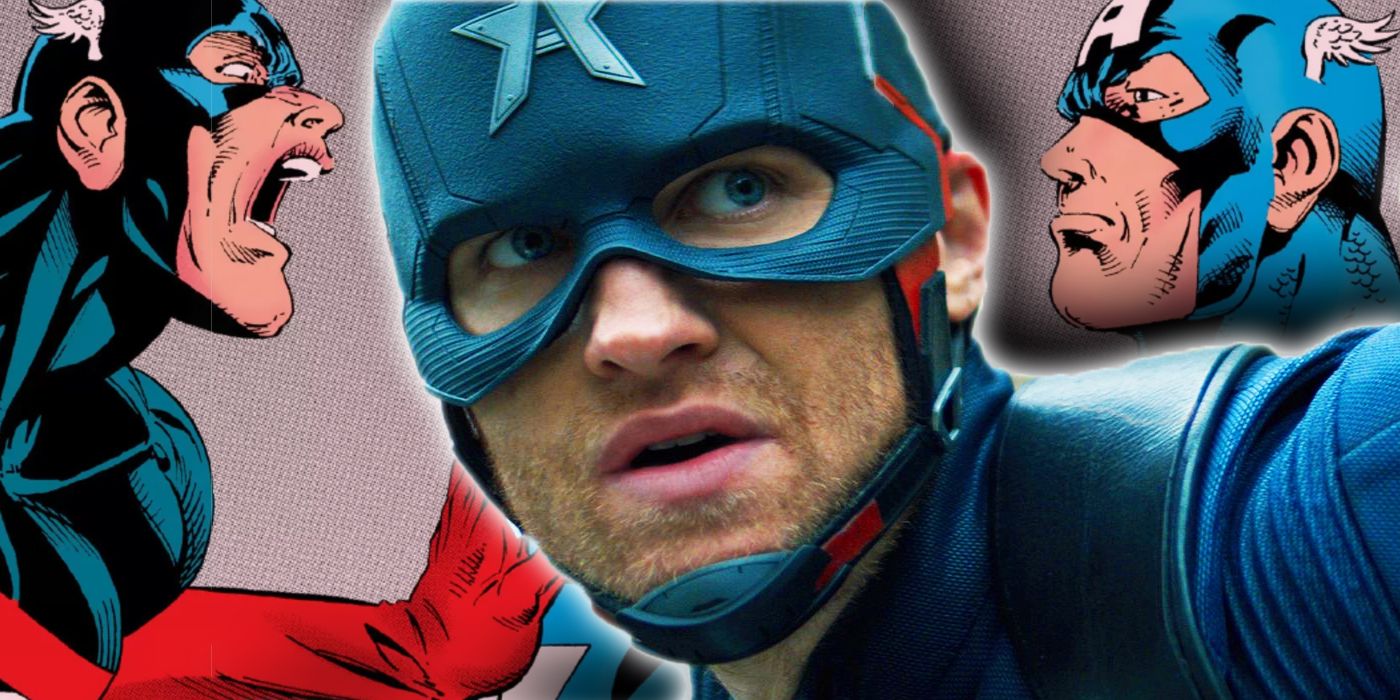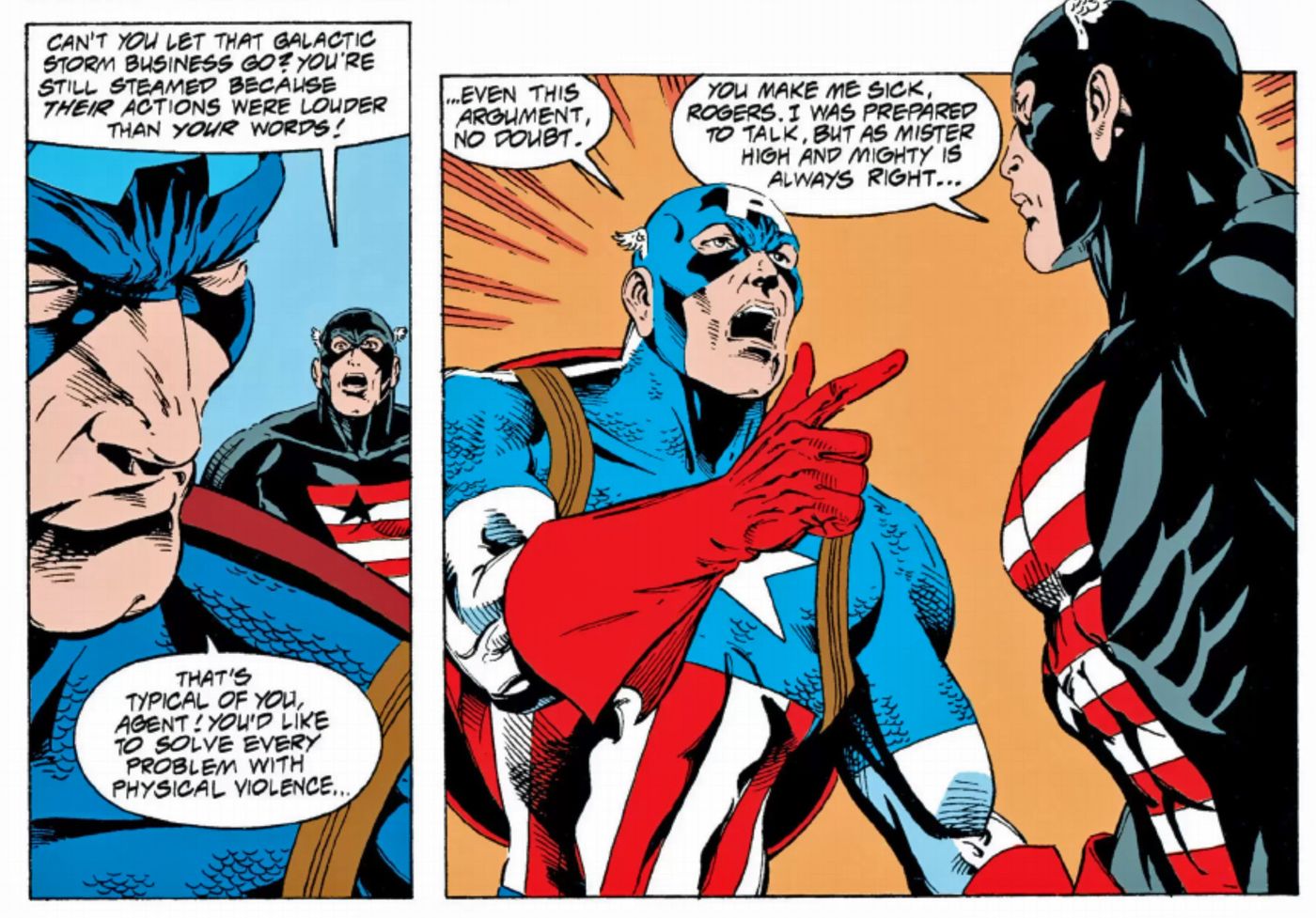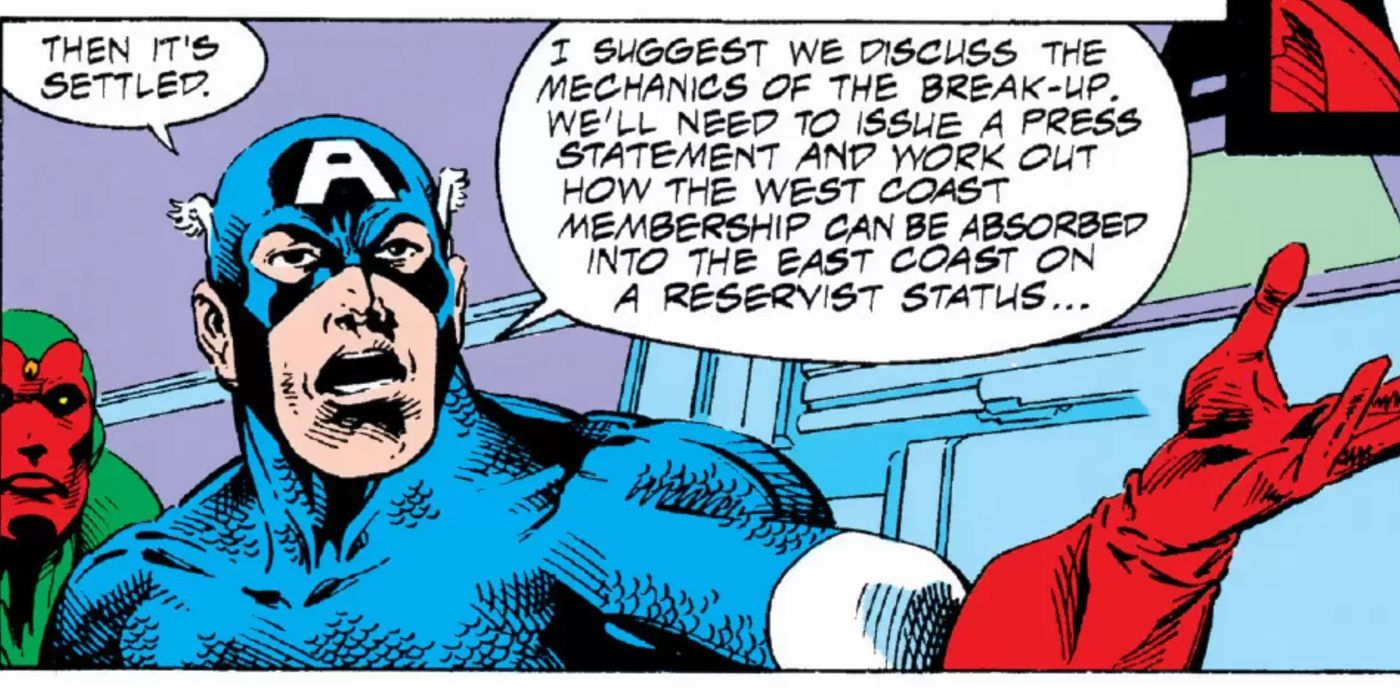While they haven't coexisted within the Marvel Universe, Captain America and John Walker, the replacement Captain America who operates as U.S.Agent in comics, have generally had a turbulent relationship. Going from a fierce rivalry to begrudging respect for one another, Steve Rogers and John Walkerhave shared plenty of battles, as both enemies and allies.
Things became really heated, however, when Captain America led the charge to disband U.S.Agent's Avengers, the West Coast Avengers in 1994.
The West Coast Avengers, also called the Avengers West Coast, was an idea brought forth by the Vision in 1984's Avengers #243, by Roger Stern and Al Milgrom. When the team took shape later that year, Hawkeye became the West Coast Avengers' chairman when the team officially debuted in West Coast Avengers #1, by Roger Stern and Bob Hall. The West Coast Avengers were a fairly eclectic team, but they had their mainstays, including Wonder Man, War Machine, Spider-Woman, the Scarlet Witch and eventually U.S.Agent. John Walker joined the group in West Coast Avengers #45, by John Byrne. During his time with the West Coast branch, Walker came to be a valued member of the team, despite his temper.
Unfortunately, everything collapsed in Avengers West Coast #102, by Dan Abnett, Andy Lanning and Dave Ross. This final issue in the series took place after "Bloodties," when both branches of the Avengers attempted to help the X-Men quell a Genoshan civil war. While the East Coast team was successful in aiding Marvel's Mutants, most of the West Coast branch was stuck arguing with the UN. Due to the West Coast Avengers' fluctuating membership, constant infighting and the number of attacks on their headquarters, Avengers like Captain America considered the team too costly.
U.S.Agent was singled out for his role in "Bloodties," with Captain America accusing Walker of being more of a blunt instrument than a diplomatic hero. It was proposed that the West Coast Avengers would become reserve members of the East Coast group after their team was dissolved. The West Coast Avengers were furious about this, especially U.S.Agent. Walker became extremely agitated by Captain America's accusations, snapping several times. At one point, U.S.Agent even tried to punch the Sentinel of Liberty in the face, but he was stopped by Iron Man.
Ultimately, the decision to disband the West Coast Avengers was evenly split, with Iron Man standing as the deciding vote. The Armored Avenger chose to disband the West Coast Avengers, much to everyone's surprise, as he was a fairly regular member of the team. With this decision, all of the West Coast members quit the Avengers altogether. This was understandable, as some of the criticisms thrown as the West Coast Avengers were fairly weak. The West Coast Avengers' roster rotated about as often as the East Coast branch, and both teams had been attacked in their headquarters. Additionally, U.S.Agent may have been little more than extra muscle during "Bloodties," but he still acted heroically and protected Professor X.
The dissolution of the West Coast Avengers deeply affected U.S.Agent, who dejectedly threw his shield into the New York Harbor. Fortunately, Walker wouldn't have to accept this defeat for long. Iron Man actually voted to disband the West Coast Avengers because he couldn't take the resentment and lack of support from the East Coast branch. Immediately, Iron Man approached the former West Coast Avengers to join a new team, called Force Works. This new group consisted of most of the same members from the West Coast Avengers, debuting in Force Works #1, by Dan Abnett, Andy Lanning and Tom Tenney. Unfortunately, Force Works had a very short-lived career, disbanding after 22 issues. Even though it didn't last, U.S.Agent was still part of a group that outlived their ties to the Avengers, and it still stands about as close as he's gotten to Marvel's main Avengers team.



